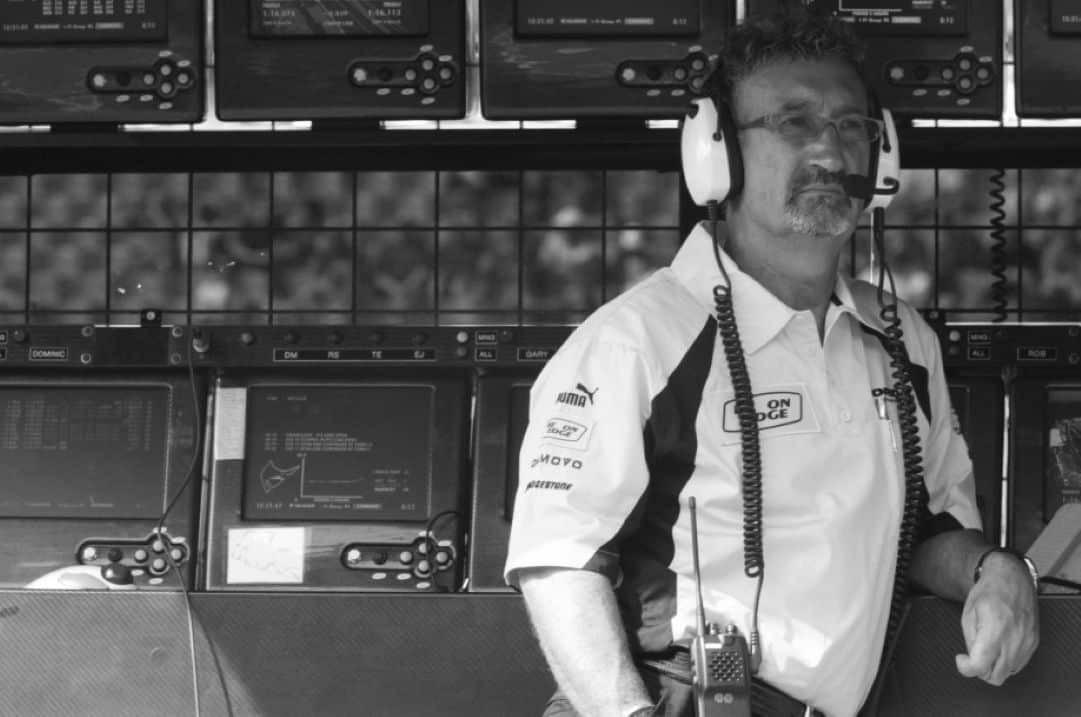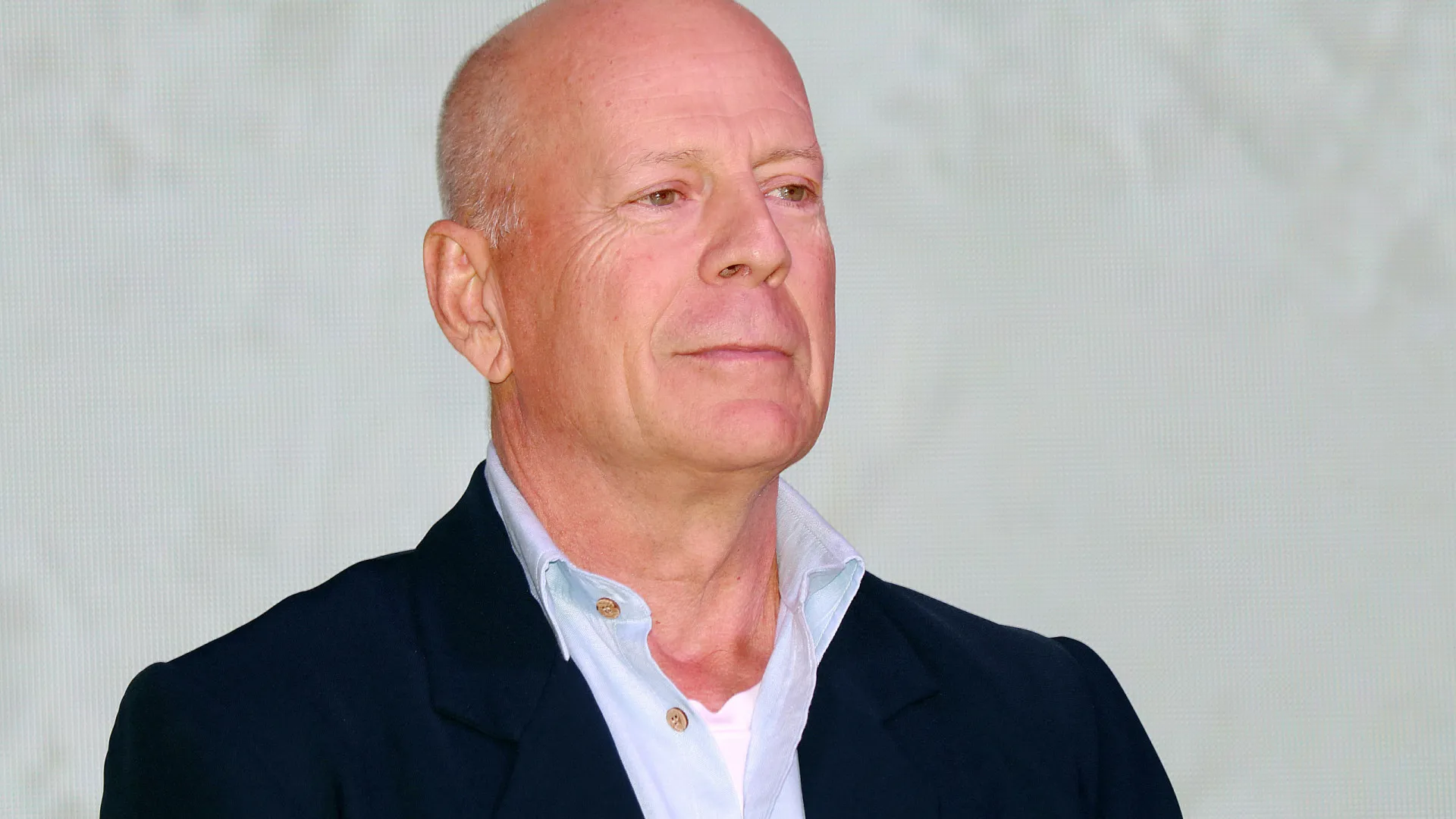
Formula 1 lost one of its most iconic and charismatic figures on Thursday, March 20, 2025. Eddie Jordan, the spirited Irishman who founded and led the Jordan team from 1991 to 2005, passed away at the age of 76 in Cape Town, South Africa, after a year-long battle with an aggressive form of prostate cancer. Surrounded by family, he departed in the early hours of the day, leaving behind a legacy that extends far beyond the racetrack, marked by six victories, legendary drivers, and a lasting influence on global motorsport. The news shook the paddock and rekindled memories of a vibrant era in the sport.
Born in Dublin in 1948, Jordan turned his passion for racing into a sporting empire. Before entering Formula 1, he cut his teeth in junior categories like Formula 3, where his vision and boldness were already evident. His F1 team, distinguished by its iconic yellow cars, became synonymous with competitiveness and creativity, even without the resources of giants like Ferrari or McLaren. Eddie’s impact wasn’t confined to results: he unearthed talent, shaped careers, and brought a unique flair to the sport.
Jordan’s death comes at a time of renewal in Formula 1, with the 2025 season underway and new cars unveiled at an unprecedented event just weeks ago. As the racing world celebrates the future, the loss of one of its past luminaries casts a nostalgic glow over a man who lived intensely both on and off the track.
We are deeply saddened to hear about the sudden loss of Eddie Jordan.
With his inexhaustible energy he always knew how to make people smile, remaining genuine and brilliant at all times.
Eddie has been a protagonist of an era of F1 and he will be deeply missed.
In this moment… pic.twitter.com/ggf1ww9kmq
— Formula 1 (@F1) March 20, 2025
Eddie Jordan’s Formula 1 journey stands out for its pioneering spirit
Eddie Jordan burst onto the Formula 1 scene in 1991 with a team bearing his name and personality. Lacking the budget of top-tier outfits, he relied on innovative strategies and an eye for emerging talent to compete in a field dominated by powerhouses. In his debut year, Jordan made waves by giving Michael Schumacher, then an unknown youngster, his first F1 start at the Belgian Grand Prix. Though Schumacher raced just once for the team before moving to Benetton, the moment launched a legendary career and underscored Jordan’s knack for spotting potential.
Over 14 seasons, the team notched six victories, with a standout moment being the historic one-two finish at the 1998 Belgian Grand Prix, where Damon Hill and Ralf Schumacher took the yellow cars to the podium. Other big names, including Rubens Barrichello, Giancarlo Fisichella, and Heinz-Harald Frentzen, also drove for Jordan, cementing Eddie’s reputation as a visionary leader. In 2005, he sold the team to the Midland group, which later evolved into today’s Aston Martin, closing his chapter as a team principal.
Beyond the track, Jordan’s influence endured. After leaving Formula 1, he became a broadcaster and analyst, winning over fans with his sharp wit and insightful commentary. In 2024, when he publicly disclosed his cancer diagnosis, he spoke candidly about his condition, staying true to the authenticity that defined him.
Drivers pay tribute to Eddie Jordan’s influence after his passing
The announcement of Eddie Jordan’s death sparked an outpouring of tributes across the motorsport community. Rubens Barrichello, who raced for the team in 1993 and 1994, recalled Jordan as a demanding yet inspiring boss. During his stint, the Brazilian grappled with an uncompetitive car but praised Eddie’s energy as a game-changer. Damon Hill, who secured the team’s maiden win in 1998, described Jordan as a charismatic leader who knew how to rally his squad through tough times.
A notable anecdote from Jordan’s tenure involves Ayrton Senna. Years later, Eddie revealed that in 1993, there had been talks of the three-time world champion joining Barrichello at Jordan. Though the deal never materialized, Senna’s interest highlighted the respect the team had earned. Jordan’s ability to attract big names despite limited resources was a cornerstone of his success.
Formula 1 CEO Stefano Domenicali also weighed in, lauding Jordan’s boundless energy and his role in a golden era of the sport. Teams like Mercedes and Red Bull took to social media to offer condolences, reinforcing the Irishman’s indelible mark on the series he helped shape.
Jordan’s Formula 1 triumphs remain etched in history
Throughout its Formula 1 tenure, the Jordan team authored unforgettable chapters. Across 250 races, it secured four pole positions, 19 podiums, and the aforementioned six wins. The pinnacle came in 1999, when Heinz-Harald Frentzen finished third in the Drivers’ Championship, trailing only McLaren and Ferrari pilots. That year, Jordan even led the Constructors’ Championship for a stretch—an astonishing feat for an independent outfit.
Among the team’s most memorable moments are:
- Damon Hill’s triumph in the chaotic, rain-soaked 1998 Belgian Grand Prix.
- Rubens Barrichello’s first podium at the 1994 European Grand Prix in Nürburgring.
- Giancarlo Fisichella’s pole position at the 2003 Brazilian Grand Prix, nearly clinching a win.
Jordan’s cars were also known for their striking liveries, evolving from an early green to a vivid yellow, often featuring sponsors like Benson & Hedges. This bold aesthetic became a hallmark of the team’s identity and remains a fan favorite.
The numbers speak to Jordan’s significance: in 1997, the team finished fifth in the Constructors’ standings, a result repeated in 1998 and 2001. While it never claimed a world title, Jordan established itself as a formidable contender in a sport where money often dictated outcomes.
Timeline of Eddie Jordan: from debut to farewell on the track
Eddie Jordan’s Formula 1 journey can be traced through key milestones that highlight his growth as an entrepreneur and racing enthusiast. Here’s a rundown:
- 1991: Jordan Grand Prix founded, debuts in F1 with Michael Schumacher at the Belgian Grand Prix.
- 1994: First podium with Rubens Barrichello at the European Grand Prix.
- 1998: Maiden win with Damon Hill at the Belgian Grand Prix, followed by a one-two with Ralf Schumacher.
- 1999: Best season, with third place in the Drivers’ Championship and fourth in the Constructors’.
- 2005: Team sold to Midland group, ending Eddie’s direct involvement.
Off the track, Jordan remained active in motorsport as a consultant and broadcaster while dabbling in other ventures. His cancer battle, made public in 2024, drew support from fans and peers, but the disease progressed rapidly in recent months.
Eddie Jordan’s legacy transcends statistics
Eddie Jordan’s imprint on Formula 1 goes beyond numbers. His ability to turn a small team into a respected competitor paved the way for other independent outfits. Jordan exemplified how talent, strategy, and passion could overcome financial constraints, influencing generations of engineers, drivers, and managers who passed through his garages.
Drivers like Michael Schumacher and Rubens Barrichello took their first steps toward stardom under Eddie’s guidance, while veterans like Damon Hill found a platform to shine anew. Jordan also brought levity to the paddock with his easygoing demeanor and stories that captivated journalists and fans alike. His television stint with the BBC and Channel 4 broadened his reach, sharing his distinctive perspective with millions.
Jordan’s passing aligns with a period of transition in Formula 1, marked by the arrival of six rookies on the 2025 grid and Max Verstappen’s recent dethroning after over 1,000 days atop the championship. As the sport looks ahead, Eddie’s farewell serves as a poignant reminder of the personalities who built its storied past.



